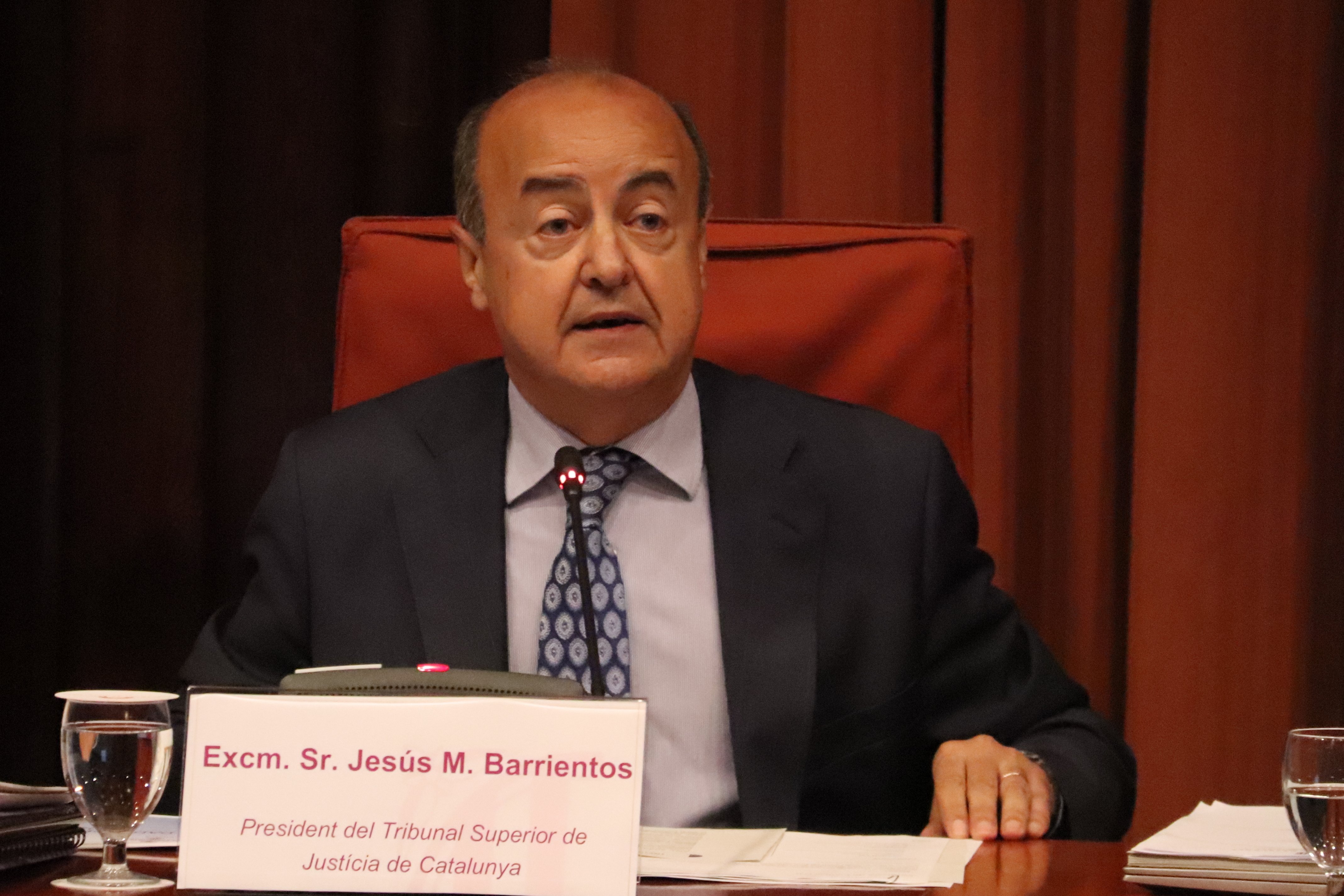An exceptional decision. The president of the High Court of Catalonia (TSJC), Jesús Maria Barrientos, will not preside over the trial against the former speaker of the Catalan Parliament, Roger Torrent, and three sovereignist members of the Parliament's procedural body, the Bureau, accused of disobedience of the Spanish Constitutional Court in 2019. The so-called Chamber 77, a committee constituted to resolve recusals of high court judges, has this Friday accepted that Barrientos will be excused from the trial, according to a resolution communicated by TSJC the press office. Torrent, through his lawyer, Andreu Van den Eynde, rejected the presence of the presiding judge because he had walked out of a Barcelona Bar Association event when Torrent referred to "political prisoners" in February 2018. Former vice president of the Bureau, Josep Costa (Junts), also challenged Barrientos and the other two judges who make up the court, for lack of impartiality. The chamber has ruled in Costa's favor, considering that there are doubts about Barrientos' impartiality, while Torrent's own appeal was rejected because it was presented after the deadline.
Thus, Chamber 77, made up of six judges from the different jurisdictions of the TSJC, accepts the recusal requested by Costa of the TSJC presiding judge, and this means - as the chamber states - that "he will have to separate himself definitively" from the case. On the other hand, the chamber does not accept the recusal of Carlos Ramos and Carlos Mir, the other two judges forming the court that is to judge them. The other two defendants and members of the Bureau, Adriana Delgado (ERC) and Eusebi Campdepadrós (Junts) seconded the recusal requests.
Trial suspended
It will now be necessary to see which judge replaces Barrientos, as, according to the regulations, the president of the TSJC must preside over the criminal trials. The trial was scheduled to begin on July 12th, and finally, this afternoon, the TSJC announced that it had been suspended in order to form a new court, according to the court procedural rules in force. In addition, the civil and criminal chamber of the TSJC has very few judges and, as in the case of the second parliamentary Bureau, it is common for it to request reinforcements from other sections to obtain its quorum of judges. Carlos Mir, for example, is a judge in the TSJC appeals chamber.
"Has been compromised"
Costa challenged Barrientos based on five actions and the court found in his favour due to the incident that took place at the Barcelona Bar Association between Torrent and Barrientos, on February 23rd, 2018, about which it states that the appearance of Barrientos' impartiality "is weakened". It concludes: "The suspicion of the appellant is legitimate and we consider that the appearance of impartiality of Jesus Maria Barrientos has been compromised." In the video of that event you can see how Barrientos gets up and leaves the room when Torrent denounces the existence of political prisoners.
It is an exceptional judicial decision, given that, in the first trial against the 2017 Bureau of Parliament, lawyers raised the same matter, but it was not accepted and the defendants in that trial were convicted of disobedience. The recent new development is that Constitutional Court judge Ramon Sáez Valcarcel gave the view that the walk-out at the lawyer's event in response to the pro-independence rhetoric of Torrent questioned the appearance of impartiality of Barrientos to try Quim Torra, although in that case, the majority of the court did not accept his constitutional appeal. Chamber 77 quotes from the arguments of this senior judge. In addition, the term of office of Barrientos as president of the TSJC expired last year, like about 20 other judicial positions, due to the political blockade by the PP over the renewal of the General Council of the Judiciary (CGPJ).
Sent to trial
In March, the TSJC announced that it was sending four people to trial for disobedience in the case: the former speaker of the Catalan chamber and current business minister, Roger Torrent (ERC) and three former members of the Bureau - Josep Costa, Eusebi Campdepadrós (both Junts), and Adriana Delgado (ERC) for allowing parliamentary votes on two motions: one pro-independence, and one anti-monarchy. The prosecution announced months ago that it is demanding, for the first three defendants, a 20 month ban from public office, and for Delgado, a 14 month ban. The far-right Vox party is conducting a private prosecution in the case, and is demanding the same punishments.

